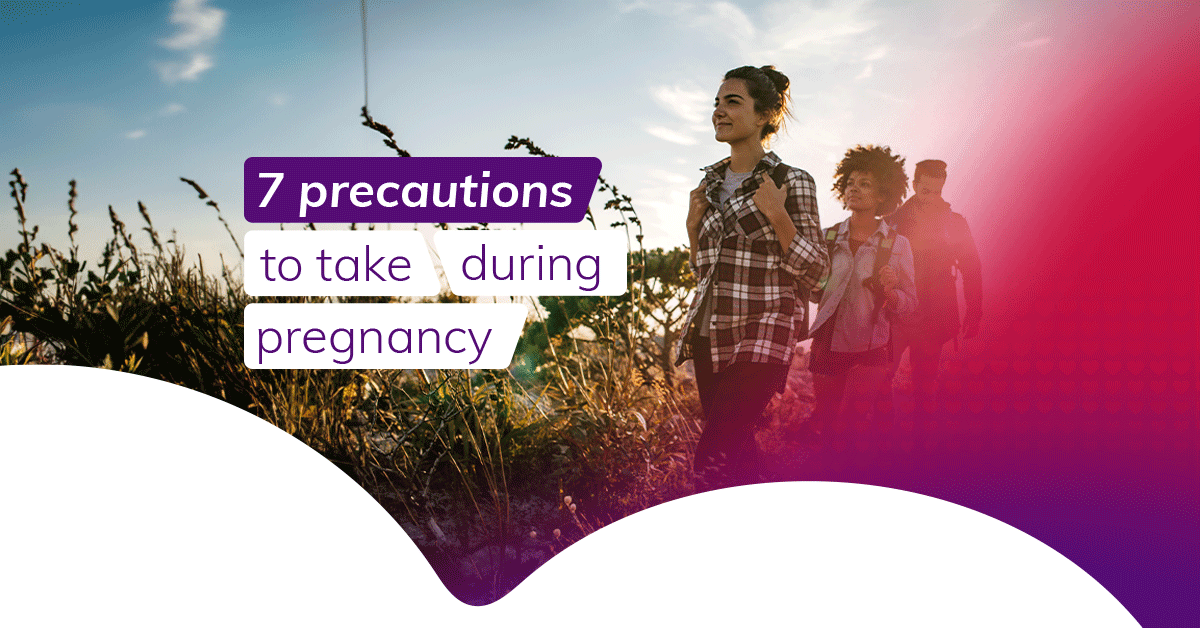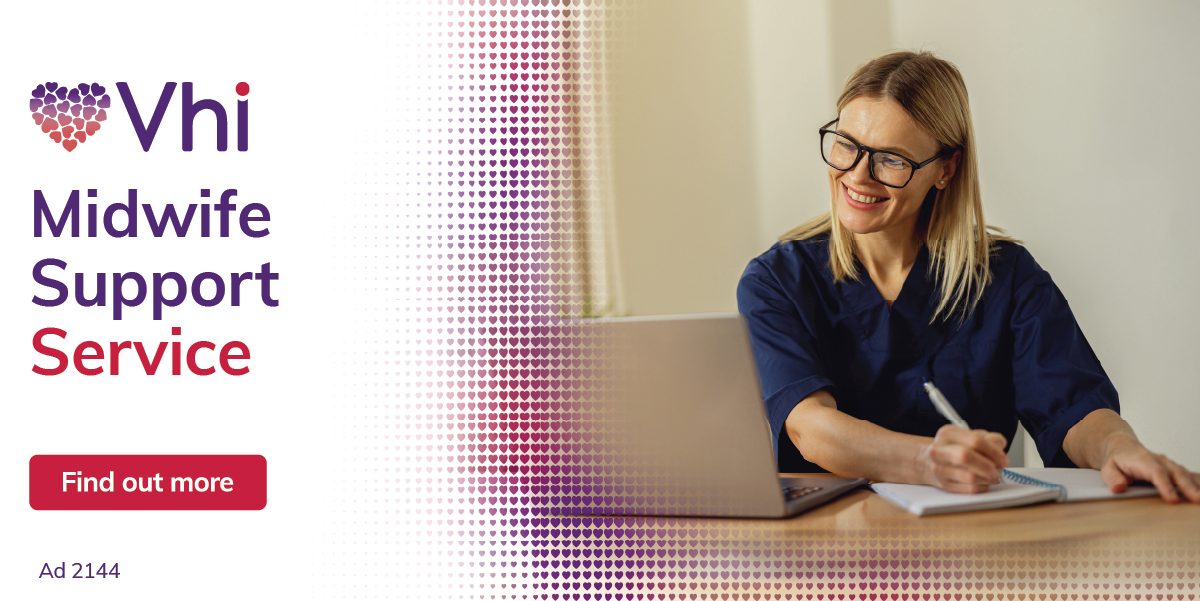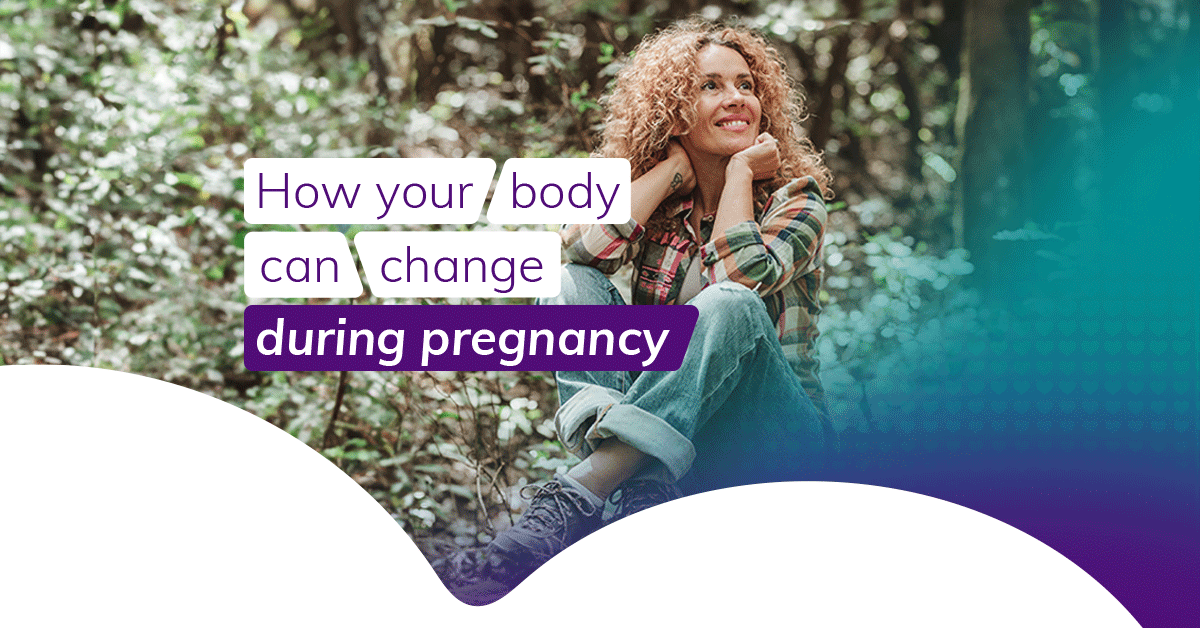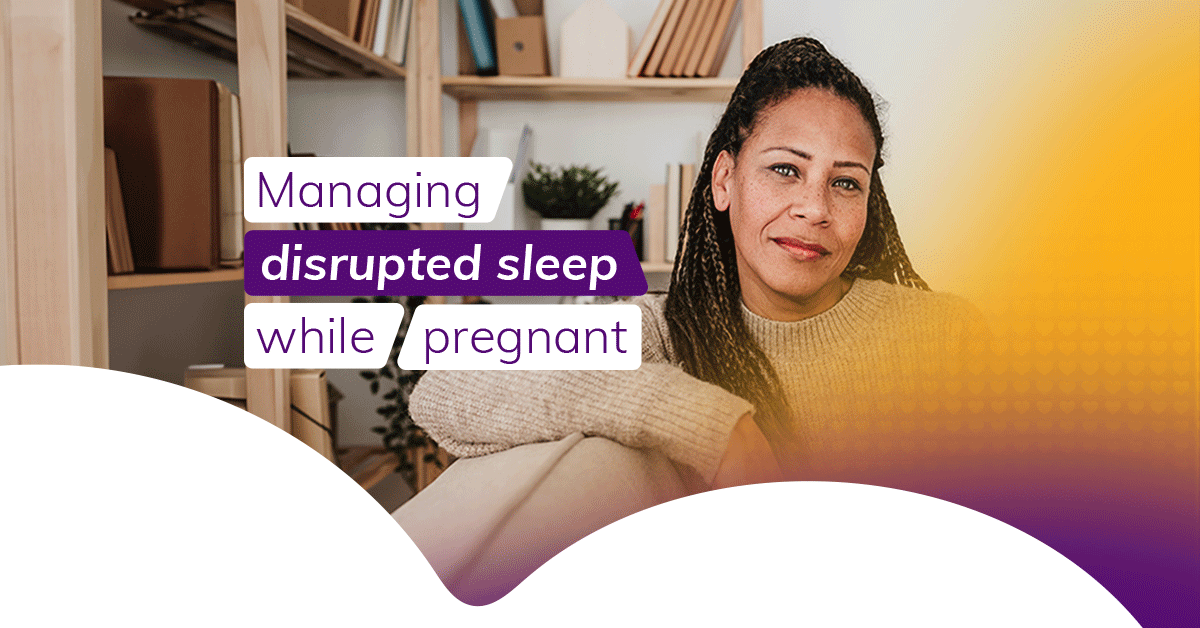

Pregnancy precautions: 7 ways to protect you and your baby
It’s tricky to know how cautious you should be during your pregnancy. Vhi Midwife Support Service Manager Breda Crotty draws on her vast experience to give you the most important pointers in 7 key areas, from foods to avoid to whether or not you should fly.
From working in an antenatal care setting for many years, I’ve seen how the lives of pregnant mothers have evolved. So I’ve a deep knowledge of the common precautions you’ll need to take as you get on with the everyday challenges of modern living.
I’m also pretty passionate about pre-pregnancy preparation, so that women will be in a fit, healthy state when their baby is ready to arrive. Sometimes babies pop into our lives at unpredictable times. It helps if you’re prepared physically and mentally when they do. But if you’re not, don’t despair! There’s plenty of expert guidance and advice available to you.
Ahead of that arrival, there are key areas we can cover to make sure you’re on the right track when it comes to pregnancy precautions…
1. Eating and drinking right
There’s a lot of things you have to be mindful of when it comes to diet, particularly unpasteurised food. Things like brie, camembert and blue cheese can harbour nasty bacteria. Even soft ice cream can carry salmonella. It’s the same for food that is undercooked or raw. You also need to be careful of cured meats. They may have parasites that cause toxoplasmosis, which is harmful to unborn babies.
You need to limit your tuna intake. It has more mercury in it than other fish, which is dangerous for your unborn. But you can certainly eat a tuna sandwich once a week if you want! If you’re off somewhere exotic, fish to avoid include swordfish and marlin. Generally raw fish is not recommended.
One myth around pregnancy is that you are “eating for two”. There’s only a slight increase of around 350 to 500 daily calories needed. But I also wouldn’t focus on counting calories. Just stick to a well-balanced diet. That means including a bit of what you fancy – but maybe not five bars of chocolate, even if you have a longing for them! The food pyramid can be helpful for making sure you hit your targets in terms of nutrients.
In terms of drinks, quitting alcohol is a given. You should limit caffeine to 200 milligrams each day, which will amount to a couple of cups of tea or coffee. Too much caffeine can hamper the unborn baby’s growth. Also be aware that chocolate contains caffeine!
2. Other substances to consider
A lot of women ask if they can dye their hair in pregnancy. I would say avoid it for the first three weeks, as that’s when the baby’s being formed and the placenta’s being made. Thereafter, there are hair dyes that are safe to use in pregnancy. So just advise your hairdresser and they’ll manage accordingly.
When it comes to over-the-counter medications, the rule of thumb is to avoid taking anything until you’ve sought expert advice. Particularly because there are so many supplements and products out there that mightn’t be recommended for pregnancy.
In some workplace environments, like healthcare, there might be certain chemicals of which you need to be mindful. That’s why it’s important to disclose your pregnancy to your line manager in the early stages of pregnancies. Painting should be done with caution because, even though lead is no longer an issue, there are other chemicals that you might need to watch out for. If you’re cleaning, always wear gloves and make sure you’re in an aerated atmosphere.
Take a look at our Vhi midwife support service, which aims to provide education and support throughout your pregnancy journey.
3. Precautions in the home
That takes us into the home environment, where the “nesting instinct” in the latter stages of pregnancy can keep you very busy. Exercise a lot of caution here. Difficulties in the home come from making bad choices, like going up a ladder, overreaching and so on. We all know from the health and safety data that a lot of accidents unfortunately happen in the home. Just be mindful of what you're doing. Get those around you to help if you want to empty that top shelf.
When it comes to pets, it’s fine to keep them in the home. You just need to exercise caution when it comes to cat litter. Avoid changing it if you can but if you’ve no one else to do it, wear disposable gloves while doing so and wash your hands with soap and water straight afterwards. Cat litter needs to be changed daily, as the toxoplasma parasite is shed in a cat’s faeces.
4. Bathing safely
Another thing people worry about is whether it’s okay to have a bath. I would say that, yes, it is. You just need to be mindful that the bath water – or the environment – isn’t too hot. This extends to, say, steam rooms in spas, where you might see signs up saying not to go in if you’re pregnant. When you become overheated in pregnancy, your blood vessels widen out and you might feel weak and faint.
Now, as your pregnancy progresses, it can become difficult to get out of the bath because of the way the bump grows. You can get stuck. It’s happened to a lot of women I know – myself included! So make sure someone is always in the room or within earshot in the house when you’re having a bath. Then if you can’t lift yourself, help is at hand.
5. Exercising
Not only can you exercise during pregnancy, but it’s also really recommended. You can continue whatever you’ve done previously. Just avoid exercises like horse riding or other activities where there’s a risk of a dangerous fall.
For most of us, it’s good to stay active for at least 30 minutes a day, five days a week. It reduces back ache, constipation, bloat and swelling, improves posture, aids sleep, strengthens your muscles, boosts your energy, and helps your mood overall.
You just need to be mindful that your muscles can overstretch very easily while pregnant. Warm up slowly and cool down at the end of your session. Yoga and Pilates are great for both your mental health and in relaxing and strengthening your muscles. Some stretches can be very strong, however, and risk your abdominal muscles, so make sure you go to an expert who’s trained in managing pregnant women.
Even if you have never exercised before, it’s really important to start. I can’t stress that enough. It’s great preparation for labour and birth. A lot of women just take to the couch because they're fearful. You need to keep moving. To ease into it, aim for a gentle 15 minutes, three times a week. Then 30 minutes, three times a week. And work your way up. Pace yourself and never do anything where you feel under pressure.
6. Going out
Mind yourself when you’re out walking. You’re more photosensitive, so keep yourself covered up, wear a wide-brimmed hat, and apply sunscreen. I’d personally advise against wearing high heels because you’re at risk of twisting your ankle or falling over, as you’re centre of gravity is thrown off completely while you’re pregnant. If you can’t see where your feet are, you might miss a step. So sensible footwear really helps. If you’re going to an event, wedge heels are okay!
7. Flying
It’s generally safe to fly unless you’re having a difficult pregnancy. High-risk pregnancies would be advised to avoid air travel, so always check before you go.
It's safe for you to go through the airport scanner. Some women might be worried about that but there’s no need. Once you get on the plane, you want to be wearing loose, cool clothing. Bring hand sanitiser with you. Finally, you need to be mindful of deep vein thrombosis (DVT) management. If you’re going on a long-distance flight, you might need to take extra precautions and should definitely seek expert clinical advice. You certainly need to wear your compression stocking for DVT in that case.
A healthy mindset
It’s natural to be a little wary of things you once took for granted while you’re pregnant. The best overall advice I could give a pregnant woman is to be sensible and practical. Wise choices come from being information-savvy, so arm yourself with the full facts and you won’t go too wrong. Now, that can be easier said than done. There’s a lot of information out there and it can be very overwhelming when you don’t know what you’re looking at. The main thing is to stick to a validated resource, like a trusted healthcare professional such as your GP or OB-GYN.
There’s also a fine balance between doing your due diligence and getting obsessive about looking after yourself. If health and safety concerns are causing you undue stress during your pregnancy, that’s where your support structure comes in. Go to your own midwife or doctor with any concerns and they’ll keep you on an even keel, making sure you’re not too worried about things.
This content is for information purposes only and is not intended or implied to be a substitute for professional medical advice, diagnosis or treatment. Always seek advice from your GP or an appropriate medical professional if you have concerns about your health, or before commencing a new healthcare regime. If you believe that you are experiencing a medical emergency call 999 / 112 or seek emergency assistance immediately.
Meet our Vhi Verified Expert



